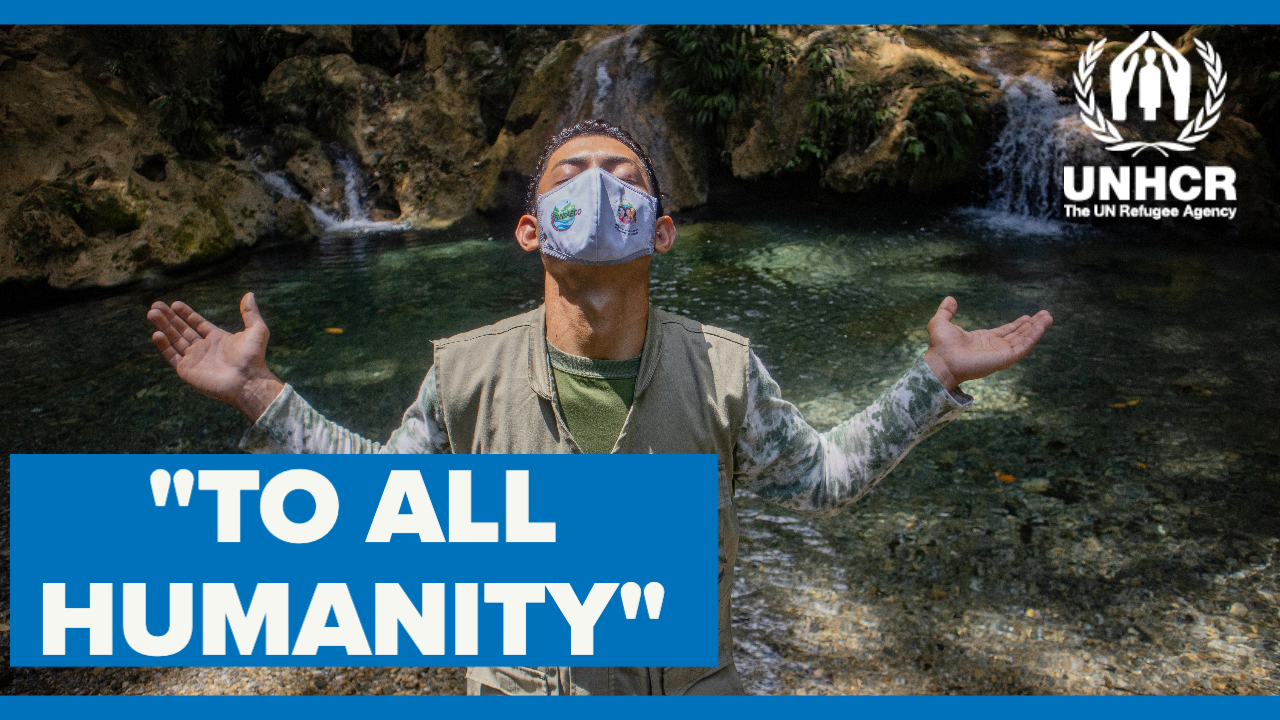Rwandan refugee begins new life caring for elderly Canadians
The first thing Bahati Ernestine Hategekimana remembers about Nova Scotia is how green the Canadian province seemed compared to the neighbourhood in Kenya’s capital Nairobi where the 28-year-old Rwandan refugee had spent most of her life.
“I just thought it was so beautiful,” Bahati recalls. “I’ve lived in a big city my whole life. The air [here] smelled so different, the trees were so bright and so alive. I just had that sense of being one with nature.”
Bahati and three fellow Rwandan refugees – Agnes Mude, Micheline Muhima and Micheleline’s 3-year-old daughter, Iriza Eliyanah – arrived in Halifax on a rainy day in June 2021. Their final destination was the quiet, rural community of New Glasgow in Pictou County, about 150 kilometres north of Halifax. There the three women were about to start working in the Glen Haven Manor, a long-term care home for elderly patients.
The pioneering programme that brought Bahati and her fellow nurses to Pictou County is called the Economic Mobility Pathways Pilot (EMPP). It offers employment opportunities in Canada to skilled refugees from all over the world.
More than 50 people have come to Canada through the EMPP since the first phase of the pilot project was launched in 2018. Under the second phase of the pilot, which launched in December 2021, Canada is looking to welcome 500 refugee workers, plus their family members.
Canada’s Minister of Immigration, Refugees and Citizenship, Sean Fraser, plans to grow the programme to welcome 2,000 skilled refugees to fill labour shortages in high-demand sectors such as health care.
Canada is also serving as the chair of a new Global Task Force on Refugee Labour Mobility which aims to create pathways for skilled refugees to move to countries around the world that are experiencing labour shortages.
“The opportunity that we have before us [is] to use this programme to change the way the world thinks about refugees,” Fraser said at the launch of the Task Force in Ottawa on 6 April.
UN High Commissioner for Refugees, Filippo Grandi, who was at the launch, applauded the initiative. “Far too often I meet refugees with enormous talent but limited opportunity,” he said. “Refugees carry more than their suitcases, [they] carry skills, [they] carry innovation capacity, enthusiasm, eagerness to belong and contribute.”
The hiring of nurses for the Glen Haven Manor was facilitated by the Pictou County Regional Enterprise Network (PCREN), a local non-profit.
The organization’s CEO, Scott Ferguson, says the programme offers local businesses a chance to tackle endemic labour shortages.
“In Pictou County, we have an aging population and local employers who have not been able to fill positions,” he says. “We are seeing shortages in multiple employment sectors. Long-term care and early childhood education are two with some of the highest rates of chronic vacancies, but we are also seeing it in manufacturing, the hospitality sector, and others.”

Bahati was born in March 1994, just a couple of months before the horror of the Rwandan genocide forced her family to flee to the Democratic Republic of the Congo.
“We stayed in refugee camps for two years until the camps became unstable security-wise and we had to flee again,” Bahati says. “And that’s when we fled to Nairobi.”
In Kenya, her parents rented a small house on the outskirts of Nairobi. Education was a big priority for the Hategekimana family, and her father enrolled the children at a makeshift school for refugees run by fellow francophone refugees from Rwanda, Burundi and the DRC.
After graduating from high school, Bahati applied for a refugee scholarship offered by the German government and began a Bachelor of Science in Nursing at Moi University in Eldoret, Kenya.
"I don't want to be helpless."
As a refugee, Bahati says she was always concerned about potential instability and insecurity. She chose nursing to ensure she would have the skills to help her community if another conflict erupted.
“I don’t want to be helpless, and I guess there were feelings of helplessness all around me, not being in control of anything because of the refugee status. I wanted some form of control in one aspect of my life,” she says – something the EMPP programme has also given her.
“You’re able to work, you’re able to access financial resources,” she says. “And beyond that, you’re no longer restricted with that refugee label. So, to me it really meant getting my power back.”
Working as a nursing assistant in the dementia ward at Glen Haven Manor allows her to care for and provide a measure of dignity to some of the home’s most vulnerable residents.
“They are really lovely people,” Bahati says. “You get a chance to interact and get to know them.”

One of the biggest adjustments to her new life in Canada has been getting used to the food.
“There is a relationship between food and home,” Bahati says. “And we really struggled with the food here.”
Neighbours came to their help, showing the new arrivals the African stores where they can buy foodstuffs from the continent, while a volunteer with RefugePoint, an NGO that partners with UNHCR to help refugees resettle in Canada, sent them a care package of African spices all the way from Toronto.
“I think of her every time we cook, because the food reminds us of being home and things that are familiar to us,” Bahati says.
One of the things that Bahati is looking forward to the most is getting her Canadian citizenship in a couple of years.
“When that day comes, it would mean a lot,” she says. “Canada is already starting to feel like home, but I guess that’s when I’ll feel that it’s a home that fully accepted and fully absorbed me.”










